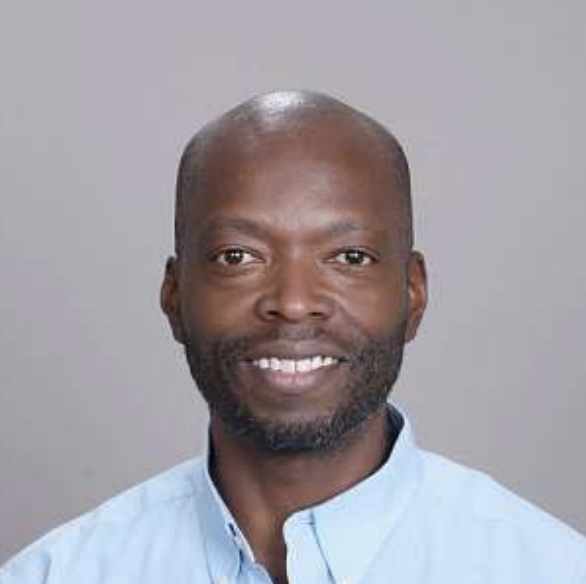In her book Why Are All The Black Kids Sitting Together In The Cafeteria? (New York: Basic, 1997), psychologist Beverly Daniel Tatum discusses the concept of racial identity development. First published nearly 25 years ago, she sought to help readers understand the impact of historic and modern racism on the development of one’s identity. For the school aged, this was demonstrated by where you sat during lunch time. Because of historic segregation, discrimination, and cultural differences, it was common to find Black students sitting together at lunch time since they were commonly rejected by most of their White counterparts. I personally remember experiencing segregation then and now.
A similar story plays out with the apostle Peter. In Acts 10, Peter was spending time in prayer when he has a strange vision. He sees heaven open up, and something like a sheet floats down out of heaven. Folded in the sheets were a variety of animals including reptiles and birds that were revealed. Peter hears the Lord’s voice say to him, “Rise, Peter; kill and eat.” But Peter knows better, at least he thinks he does. He responds saying there’s no way he could eat those animals. They were considered unclean. Peter followed the law and knew he shouldn’t eat those animals. But the Lord said to him, “What God has made clean, do not call common.” This scene repeats three times before the sheet with all the animals went back into the sky. Peter comes out of the vision not knowing what it meant. But soon, Peter realizes God’s plan through the work of the Holy Spirit and interacting with Cornelius (a Gentile) and his family. Peter confirms this when he states, “Truly I understand that God shows no partiality, but in every nation anyone who fears him and does what is right is acceptable to him” (Acts 10:34–35). Peter and his peers witness the amazing Holy Spirit resting on the Gentiles in the same way Peter had experienced Him. Cornelius and his family were immediately baptized.
Unfortunately, not everyone was as excited about these series of events. When Peter went to church headquarters in Jerusalem, word had already gotten back about all that had happened with the Gentiles. There were some who felt this was not good. They said to Peter, “You went to uncircumcised men and ate with them” (Acts 11:4). They didn’t say, “You shared the Gospel with those uncircumcised men and shouldn’t have,” or, “You prayed for those uncircumcised men and shouldn’t have.” Their issue was with Peter eating with them. Why? Why would they take issue with eating?
Sharing meals in Ancient Near Eastern context expressed deeply symbolic and spiritual ideas. Shared meals affirmed friendship, camaraderie, status, and goodwill. Eating a meal with someone was special. It was personal. It was life giving. Mealtime was so spiritual that one scholar notes, “[W]hen it comes to meals, the kitchen table and the altar are inseparable.”
This context of the meal helps us understand why some had likely taken offense to Peter eating with the Gentiles. Perhaps they didn’t believe the Gentiles deserved relationships with them; Gentiles were inferior to them. Or maybe they didn’t want to do the hard work of building relationships with them. After all, they were a different (or inferior) culture, a different race or ethnicity, or just plain different. For the Jewish Christians, there was no need to affirm friendship, camaraderie, status, or goodwill. The Gentiles were sitting at the wrong table.
When we consider today’s times, we still find ourselves sitting eating at separate tables. Our neighborhoods and churches remain pretty much segregated. Mealtimes at the office can sometimes diversify over lunch in the breakroom. Sometimes after work, our meals at the local bar and grill or happy hour may even include others unlike ourselves. But when it comes to those intimate mealtimes such as our own kitchen tables, or when it’s a special occasion for some meaningful event in our lives that include a meal, the seats at those tables tend to be reserved for only those with whom we can immediately relate. Avoiding the hard work of building new relationships becomes the norm. We’re comfortable at our tables. All the seats are taken.
Dr. Tatum talks about the importance of racial identity development in the lunch table encounter. But what about our spiritual identity development? The Bible tells us repeatedly that our identity is in Christ. We are created in Him (Ephesians 2:10). We are His friends (John 15:15). We are God’s children (1 John 3:1). We are told to put off our old selves (Ephesians 4:22–24) and to take on this new identity in Christ. This identity supersedes your (and everyone else’s) race, ethnicity, or culture.
Who have you invited into your circle that doesn’t physically resemble you? With whom have you taken a chance to initiate a friendship that doesn’t resemble you (Proverbs 18:24)? Who have you avoided inviting to your small group or intimate group of friends? Who is it (racially) that you enjoy discussing sports or Scripture with, but you avoid the awkward race discussion? Jesus is calling us to sit at their lunch table, whoever they may be. May we yearn to sit at the right table, the table that confirms our identity in Christ over all else. May we all enjoy that mealtime with one another together.
Prayer Requests:
- Pray for a firm understanding of your true identity in Christ.
- Pray against the spirit of pride, which would have you think you’re better than “they” are.
- Pray for opportunity and boldness in your pursuit of unity fellowship.
- Pray for courage to face rejection, shaking the dust off your shoes and continuing to pursue unity fellowship (Matthew 10:14).












